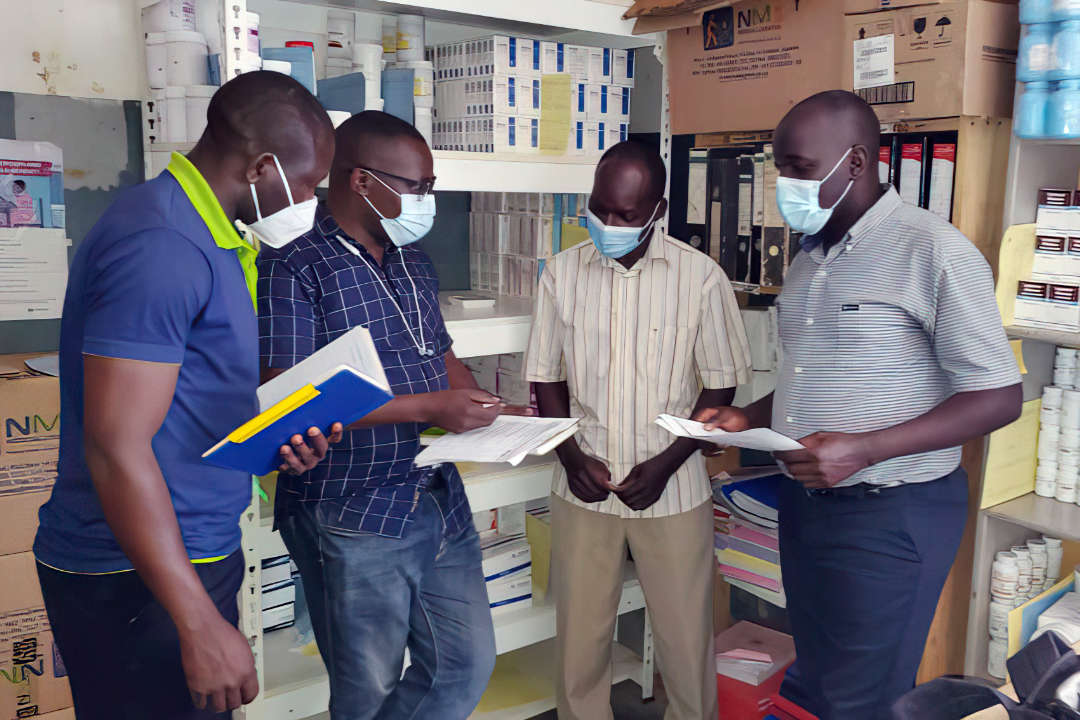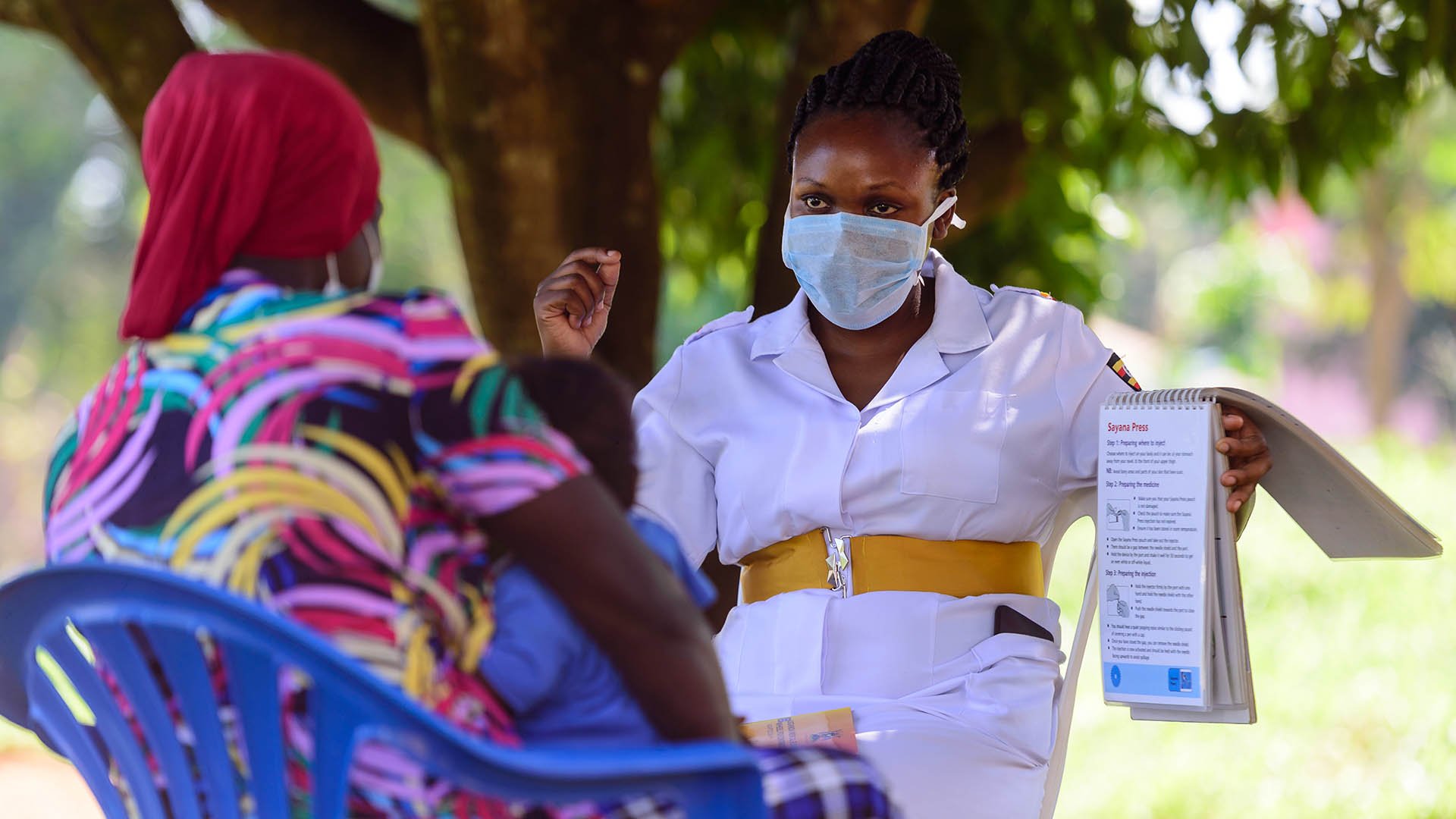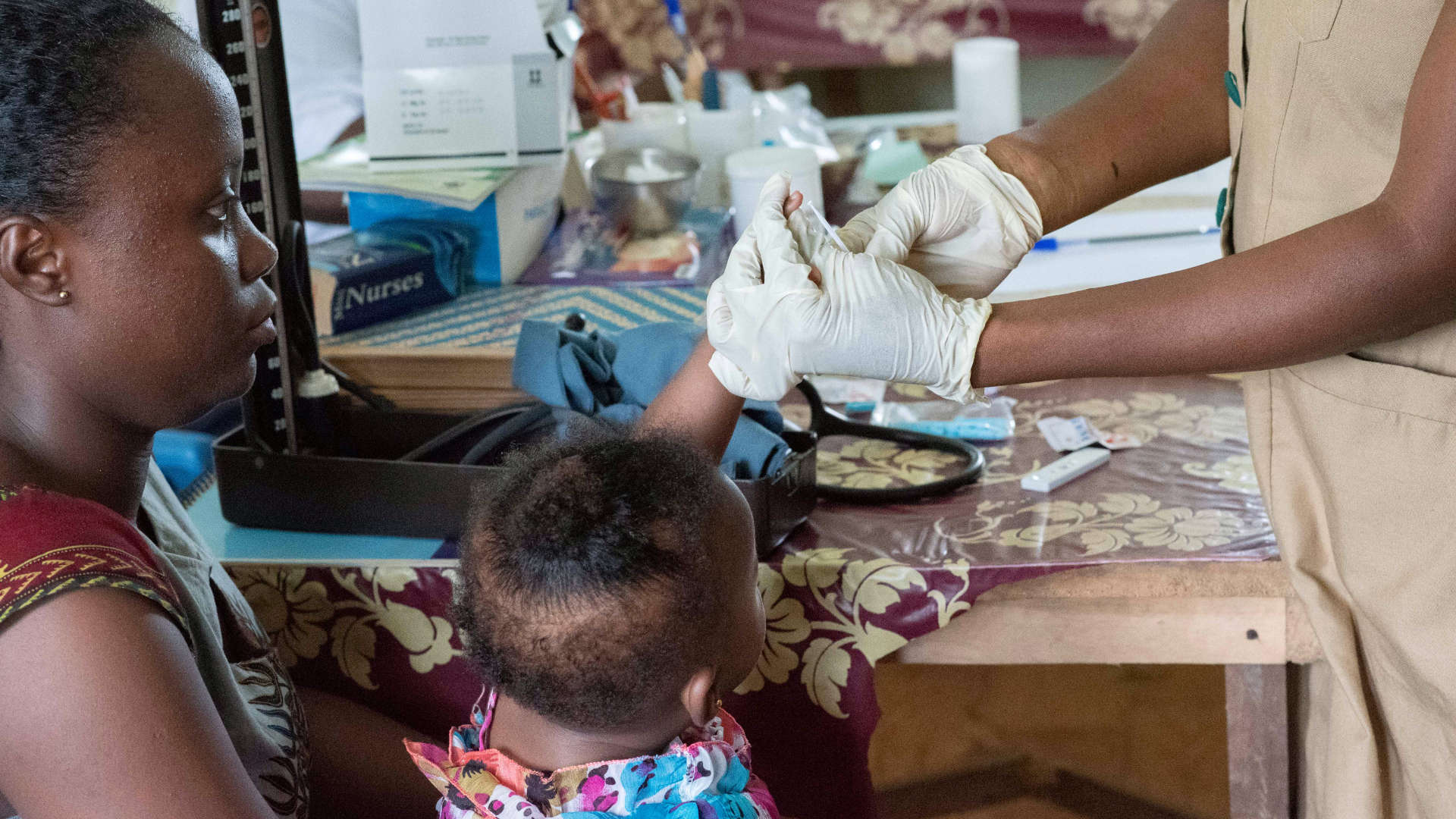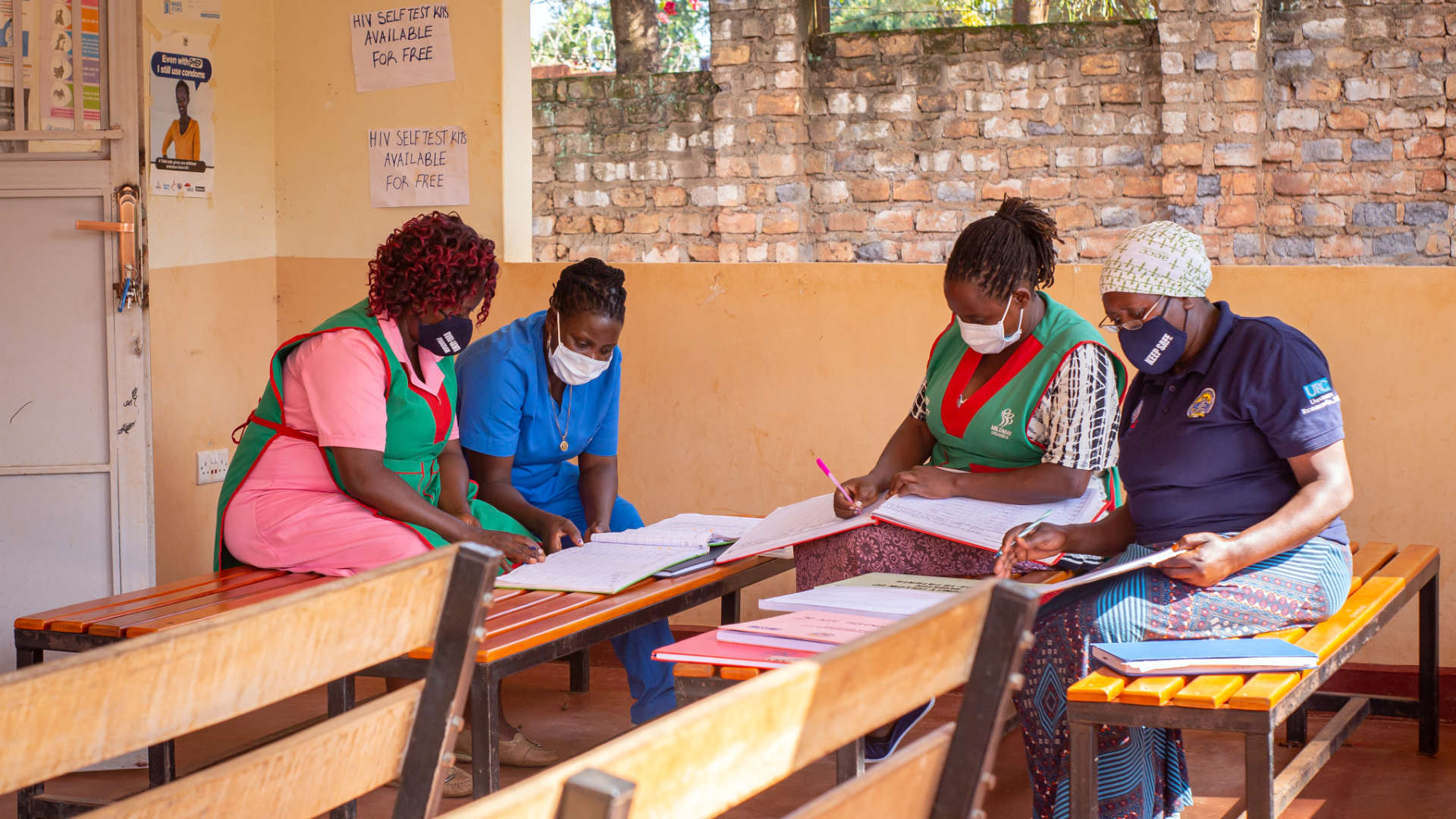In April 2020, Taabu Risper, 49, took her sick son Emmanuel, 17, to Banda Health Centre III (HCIII) in Namayingo District, where he was clinically diagnosed with a bacterial infection.
The clinician prescribed drugs to treat the infection and allowed him to return home. But the prescribed drugs – including an antibiotic – were out of stock at Banda HCIII. So Risper – a widow and peasant farmer – borrowed money from friends and family to get the drugs from a private pharmacy.
Unfortunately, Emmanuel’s condition did not improve after completing the course of drugs. So Risper sought additional treatment.
“Emmanuel was sick for a long time,” Risper said. “It was hard to recover from the debt, and I was scared to return to the health center for treatment for my children.”
A Much Better Patient Experience
In May 2021, Risper’s 15-year-old daughter Jennifer had a fever and a headache for three nights, so Risper took her to Banda HCIII. A malaria rapid diagnostic test given at the health center confirmed that Jennifer had malaria. But unlike Emmanuel’s visit last year, the drugs prescribed were in stock, including the recommended antimalarial artemether-lumefantrine and paracetamol to reduce her fever and pain.
The health worker took time to explain to Risper and her daughter why each drug would improve Jennifer’s symptoms and help her recover. Jennifer took the medicine as prescribed and recovered within a week. Risper was pleased to see an improvement in the availability and prescription of the appropriate medications at Banda HCIII, which resulted in her daughter’s timely recovery.
SPARS Intervention Mentors Health Workers
This improvement in care was due in part to Banda HCIII’s participation in the intensive Supervision, Performance Assessment, and Recognition Strategy (SPARS) supply chain capacity-building activities supported by the USAID Regional Health Integration to Enhance Services in East Central Uganda (RHITES-EC) Activity.
SPARS is a quality improvement intervention implemented by a district medicines management supervisor – someone who mentors health workers at the facility level on how to improve the availability of medicines and the quality of prescriptions at public health facilities. The Uganda Ministry of Health adopted SPARS as a national strategy in 2011.
A SPARS tool assesses the availability and prescription of medicines along five domains critical to patient care:
- Prescribing quality, which assesses health worker adherence to standard treatment guidelines when selecting medications for a patient;
- Dispensing quality, which measures correct provision of the medication along with both verbal and written information for the patient on how to administer and store the medication;
- Stock management;
- Storage management; and
- Ordering and reporting quality.
Data is collected using a SPARS support supervision tool and submitted into Uganda’s national pharmaceutical information portal, or PiP. The generated SPARS scores help health workers develop targeted improvement plans to enhance patient care.
“We are grateful for the SPARS capacity building, which has benefited us and the two-health center IIs we support in medicines requisition,” said Daniel Ochan, the in-charge of Banda HCIII. “As a result, we have significantly improved in four of the five parameters that the SPARS tool assesses.”
Improvements Seen District-Wide
In Namayingo District, continuous onsite and virtual SPARS mentorships have helped most of the health facilities achieve significant improvements regarding availability of medicines and accurate prescribing. In the few cases where health facilities have not improved sufficiently, RHITES-EC and the districts – working through district medicines management supervisors –provide more intensive onsite coaching and virtual technical support to address knowledge gaps on treatment guidelines and drug forecasting.
For example, following persistent gaps with essential drug stock management, the stores in-charges at Sigulu HCIII and Bugana HCIII are receiving further targeted support to operationalize the first expiry, first-out method to improve inventory management, reduce stockouts, and minimize wastage of drugs.
At a regional level, the 12 East Central Uganda districts have improved significantly in stock management of essential medicines. After three years of SPARS implementation SPARS scores increased from 44% (11/25) in December 2017 to 75% (18.7/25) by June 2021.



